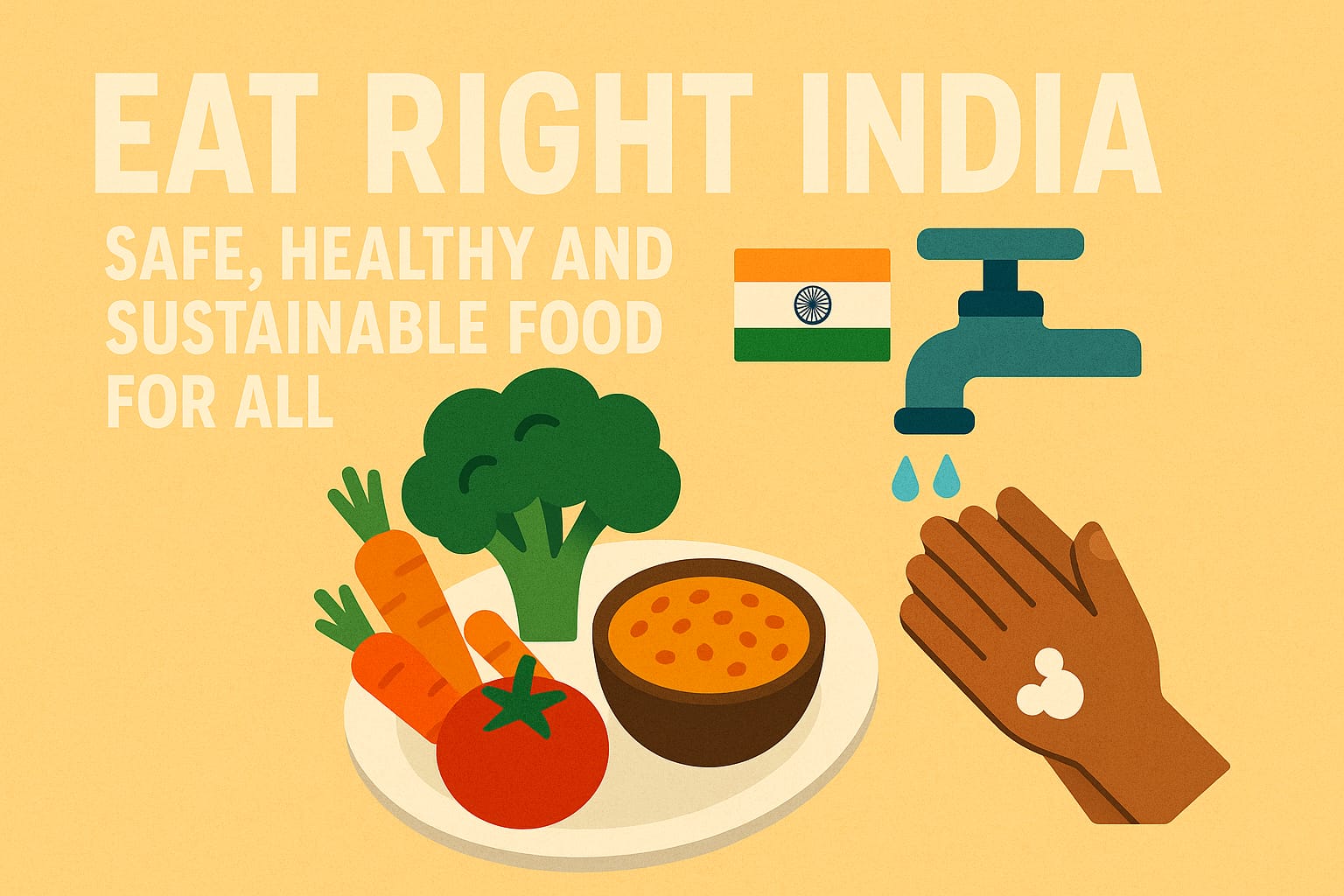With over 12 lakh food handlers trained, hundreds of railway stations and street food hubs certified for hygiene, and lakhs of litres of used cooking oil converted into biodiesel, the Eat Right India initiative continues to reshape the country’s food landscape with its sweeping focus on safe, healthy and sustainable practices.
Prime Minister Narendra Modi, in his recent Mann Ki Baat address on June 29, urged citizens to adopt mindful eating habits by cutting down oil consumption by 10 per cent — a reminder that healthy choices begin in the kitchen. “When you are fit, you will be superhit in your life,” he said, reinforcing the initiative’s core message.
Launched by the Food Safety and Standards Authority of India (FSSAI) in July 2018, Eat Right India integrates regulation, capacity-building, public engagement and sustainability. Its mission: to ensure that what reaches people’s plates is not only safe but also nutritious and environmentally responsible.
Driving Transformation Across the Food Chain
At its heart, Eat Right India operates through a three-tiered strategy: improving supply-side standards, fostering consumer awareness and advancing sustainability.
On the supply side, initiatives like FoSTaC (Food Safety Training and Certification) equip food handlers with essential knowledge to maintain hygiene and safety. Certification schemes such as Hygiene Rating, Eat Right Stations and Clean Street Food Hubs incentivise food businesses—ranging from small vendors to large establishments—to upgrade infrastructure, undergo audits and adopt safe food practices.
On the demand side, campaigns such as Aaj Se Thoda Kam and Trans Fat-Free India have helped millions make healthier choices by advocating reduced consumption of salt, sugar and trans fats. The Eat Right School programme and Eat Right Campus certification bring this mission into schools, colleges, workplaces, hospitals and even prisons.
Environmental responsibility is a core pillar. Over 55 lakh litres of used cooking oil have been collected under the Repurpose Used Cooking Oil (RUCO) scheme, with 39 lakh litres repurposed into biodiesel. Initiatives also promote sustainable packaging, reduction of single-use plastics, and fortified staples to combat hidden hunger.
Innovation and Recognition
FSSAI has integrated digital tools like FoSCoS, a single-window licensing and compliance platform, and the Food Safety Connect app, which links inspectors, businesses and consumers for real-time reporting. More than 62,000 Food Safety Mitras support last-mile compliance, extending food safety to remote areas.
Internationally, Eat Right India’s innovative approach has won acclaim, including recognition from the Rockefeller Foundation and the World Health Organization (WHO). Notably, it was selected as one of the top visionaries for the Food Systems Vision Prize 2021, chosen from over 1,300 global entries for envisioning a regenerative and nourishing food system for 2050.
A Collaborative Movement
The initiative’s strength lies in its whole-of-government and whole-of-society approach. It aligns with flagship national schemes such as Ayushman Bharat, POSHAN Abhiyaan, Anaemia Mukt Bharat and the Swachh Bharat Mission, working closely with ministries, state authorities, municipal bodies, academic institutions and NGOs.
Private players too are active partners — from food manufacturers reformulating products to street vendors improving hygiene. The Corporate for Eat Right India (C4ERI) platform drives CSR-backed training, infrastructure and awareness campaigns.
A Model for the World
Eat Right India’s alignment with global goals such as the UN Sustainable Development Goals (SDGs) — from SDG 2 (Zero Hunger) and SDG 3 (Good Health and Wellbeing) to SDG 12 (Responsible Consumption and Production) and SDG 17 (Partnerships for the Goals) — highlights its role as a replicable model for nations working to strengthen food systems.














